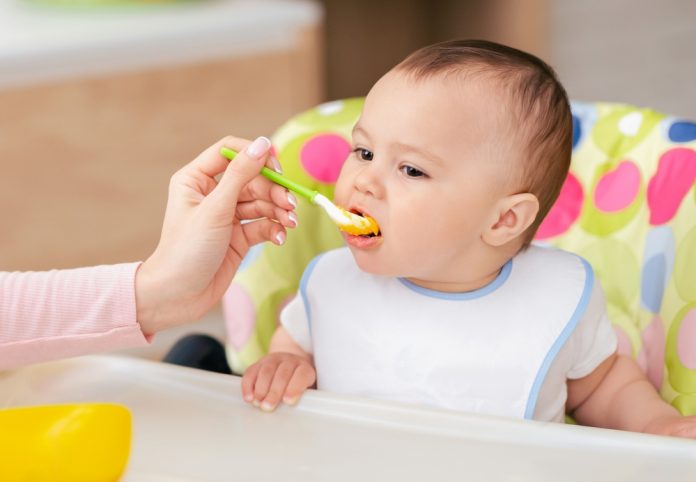Ready-made food for infants and toddlers bought in pouches and boxes in Australian supermarkets “fall short” of nutrient, labelling and marketing requirements set out by the World Health Organization (WHO), according to a new Monash University study.
The study found that less than one quarter (23%) of food products specifically promoted as suitable for infants and toddlers met all nutrient content requirements as outlined by the World Health Organization. Of particular concern, 43% of products exceeded recommended limits for sugar.
In 2023, commercial baby food sales in Australia – including prepared baby food, cereals and snacks – generated over $370 million in revenue.
According to lead author, Dr Alexandra Chung from the Department of Nutrition, Dietetics and Food at Monash University, one in two Australian children aged up to five years consume commercial infant and toddler food one or more days per week.
“At the same time, commercial infant and toddler food represent a growing segment of the grocery market, with increasing numbers of new products launched onto the market,” said Dr Chung.
Published in the journal, Public Health Nutrition, the study also found that “none of the 45 products assessed met all of the labelling or promotional requirements as outlined by the WHO – and all products assessed included at least one promotional marketing claim that was not permitted under the WHO guidelines.
“The marketing claims give parents the perception that these products are healthy, when in fact they are often high in sugar, and do not offer the variety of textures and flavours that children need.”
The study assessed commercial food for infants and toddlers available in Australian supermarkets for compliance with the WHO Regional Office for Europe’s Nutrient and Promotion Profile Model (NPPM), which supports appropriate promotion of food products for infants and young children six–36 months. The study sample consisted of 45 items sold for babies and toddlers in Australian supermarkets.
In Australia, compositional and labelling requirements of food are regulated by The Australia New Zealand Food Standards Code. The standard for food for infants outlines limits on sugar and sodium, and minimum iron content in cereal-based food, as well as labelling requirements, including age recommendations and vitamin and mineral content claims.
However, many of the claims commonly made on infant and toddler food are not regulated under the Food Standards Code, according to Dr Chung.
“This includes claims that make appeals to health and promote the product as ideal for young child feeding such as ‘natural’, ‘organic’, ‘no nasties’, ‘no preservatives’ and ‘for tiny hands’,” she said.
“There is a distinct gap in the current regulation of commercial food for infants and toddlers that allows manufacturers to influence children’s diets through the promotion of these products.
“This study is timely given the Australian Government Department of Health and Aged Care recently held a public consultation on improving commercial food for infants and young children.”
According to Dr Chung, this consultation “presents an important opportunity for the Government to implement comprehensive, mandatory regulation that improves the composition, and ensures accurate labelling and honest promotion of commercial foods to protect the health of Australia’s youngest children”.
Key findings
- 23% of baby food found on supermarket shelves meet WHO guidelines for nutrient content.
- 43% exceeded guidelines for sugar content.
- Labelling standards fail to assist consumer in choosing nutritious health food for babies and toddlers, Monash study finds.




